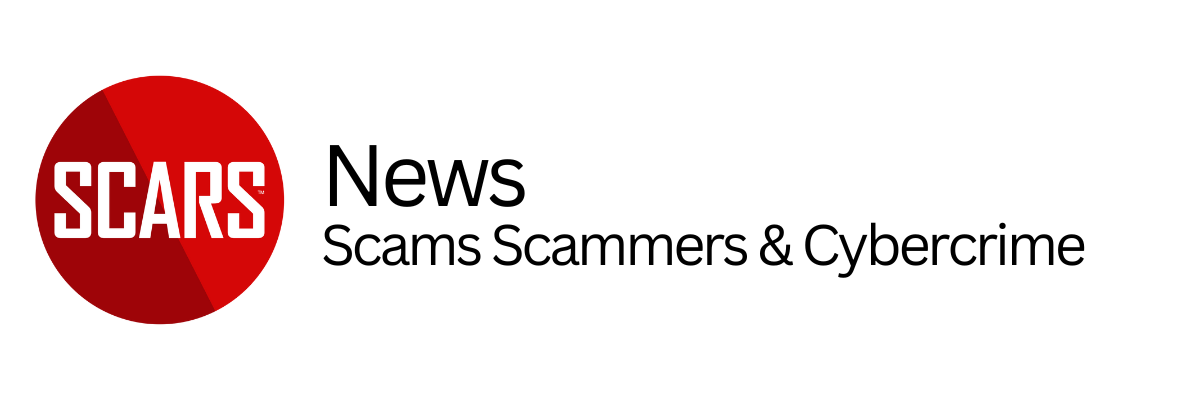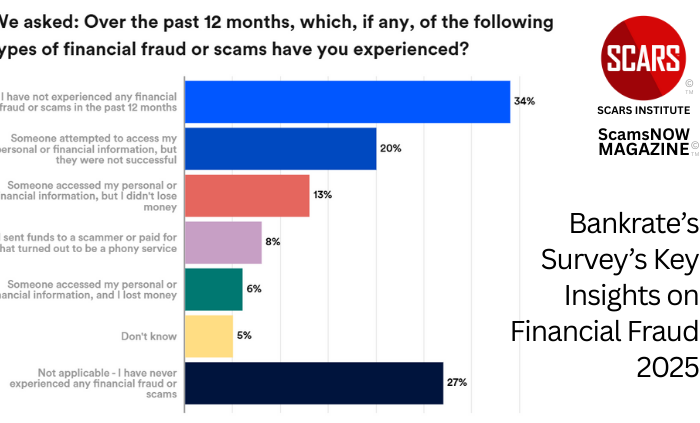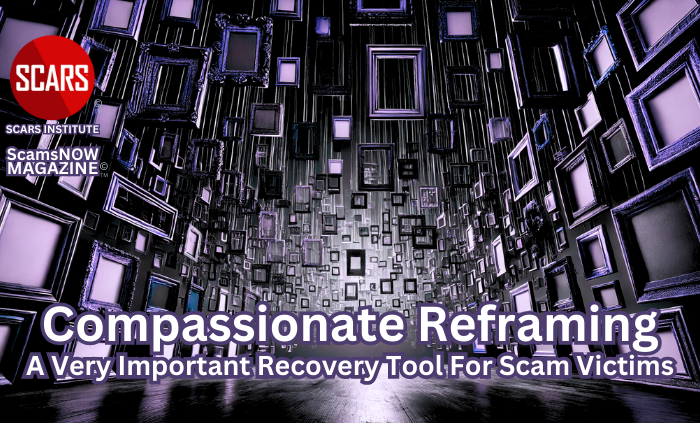North Korea Hackers are Using AI (Artificial Intelligence) for Scams
Cybercrime is Evolving Fast!
Cybercrime News
Author:
• SCARS Editorial Team – Society of Citizens Against Relationship Scams Inc.
• Portions from Financial Times
About This Article
North Korean hackers are now utilizing artificial intelligence (AI) to orchestrate more sophisticated cyber scams, leveraging platforms like LinkedIn and AI services such as ChatGPT to enhance their deceptive tactics.
This shift towards AI-driven cybercrime poses a significant challenge to cybersecurity efforts globally. By creating credible profiles and engaging targets over extended periods, hackers can execute more convincing phishing attempts and malware dissemination.
The integration of AI into cyber operations underscores the need for heightened cybersecurity measures and international collaboration to combat evolving cyber threats effectively.

North Korean Hackers Employ Artificial Intelligence in Advanced Scams
Cybercrime is evolving rapidly, with North Korean hackers now leveraging artificial intelligence (AI) to perpetrate more sophisticated scams.
These cybercriminals, backed by Pyongyang, are utilizing AI to facilitate the theft of cutting-edge technologies and to finance illicit nuclear weapons programs. Historically, their targets have included employees of global defense, cybersecurity, and cryptocurrency companies, whom they lure into revealing sensitive information or granting access to computer networks and crypto wallets through platforms like LinkedIn.
Notable incidents include the $951 million theft from Bangladesh’s central bank and the WannaCry ransomware attack on the UK’s National Health Service. Recently, it was confirmed that North Korean hackers, along with those from China, Russia, and Iran, are utilizing AI services from OpenAI and Microsoft to support malicious cyber activities. These developments underscore the growing sophistication of cyber threats and highlight the need for enhanced cybersecurity measures to mitigate such risks.
The adoption of AI by North Korean hackers presents a formidable new challenge to cybersecurity experts and law enforcement agencies worldwide. Previously, North Korean phishing and social engineering operations were hindered by the hackers’ poor grasp of colloquial English or Korean, essential for gaining the trust of their targets. However, with the integration of generative AI, these limitations are being overcome, enabling hackers to create more credible profiles on professional networking sites like LinkedIn. By leveraging AI for chatting, messaging, image creation, and identity fabrication, hackers can build relationships with targets over weeks or months, enhancing the effectiveness of their schemes.
One instance cited by experts involved North Korean hackers posing as recruiters for a cryptocurrency exchange in Singapore on LinkedIn, targeting a senior engineer at a Japanese cryptocurrency exchange. By engaging the engineer in a technical exercise that involved downloading software, the hackers infected it with North Korean spyware. Such attacks highlight the increasing sophistication and deception employed by cybercriminals.
Moreover, AI services like ChatGPT not only aid in developing more advanced forms of malware but also enable hackers to create more convincing phishing attempts on platforms like Facebook, WhatsApp, Telegram, and Discord. While safeguards exist within these services to prevent malicious use, cybercriminals have found ways to circumvent them, including accessing Chinese AI services.
Pyongyang’s pursuit of AI capabilities for cyber operations aligns with its broader strategy of enhancing its cyber capabilities to support its nuclear ambitions. Academic papers published in North Korean scientific journals, often in collaboration with Chinese scholars affiliated with military institutions, provide insights into Pyongyang’s focus on AI applications for warfare simulations and nuclear reactor operations.
Despite the embryonic nature of North Korean AI systems, their potential impact on cybersecurity and international security is significant. As such, the international community must remain vigilant and proactive in countering cyber threats posed by state-sponsored actors like North Korea. Enhanced cooperation among governments, cybersecurity firms, and technology companies is crucial to effectively combatting the evolving landscape of cybercrime and safeguarding global security.
Learn more: North Korean hackers use AI for more sophisticated scams (ft.com)
Please Rate This Article
Please Leave Us Your Comment
Also, tell us of any topics we might have missed.
Thank you for your comment. You may receive an email to follow up. We never share your data with marketers.
Recent Reader Comments
on Scam Victim Resiliency – Why It Is So Much Worse After The Scam – Updated 2024: “I liked this article – I used to be resilient but in the last five years I have had trauma…” Mar 6, 21:14
on Japanese Geidō: Helping Scam Victims to Master Their Life and Art – 2025: “Thank you. I also found that art is one of the best relaxation methods and stimulators for many years.” Mar 6, 12:14
on Abstinence for Scam Victims – A Requirement For Healing: “As a married survivor I can see how re-entry to dating too soon can lead to more recovery issues. Additionally,…” Mar 6, 11:08
on Eremitism – Living in Solitude while Healing for Scam Victims – 2025: “Thank you for this article. Solitude makes you focus on yourself, make friends with yourself, forgive yourself and get peace…” Mar 6, 10:56
on Social Media Prohibition!: “Agreed, misinformation is a real problem now. Additionally, it is compounded by too many people not understanding our Constitution and…” Mar 6, 10:41
on Scam Victims: The Need To Tell Their Stories – The Need For Acceptance – 2024: “I feel a need to tell my story. I am also very afraid to tell my story. My husband believes…” Mar 5, 13:59
on A Sense of Impending Doom and Scam Victims – 2025: “I lived my whole life on a worst case scenario. I only realised how bad it was when enrolled in…” Mar 5, 06:34
on Accepting Responsibility is the Adventure for Scam Victims on the Road to Recovery – 2025: “Valid not only for victims of scams, but life in general as well. Thank you” Mar 4, 06:09
on Understanding the Artificial Barriers to Recovery that Many Scam Victims Create – 2025: “You seem to be in a deep struggle with your reality. The answer you are seeking may not be something…” Mar 3, 06:44
on Understanding the Artificial Barriers to Recovery that Many Scam Victims Create – 2025: “I keep denying that it’s a scam. I keep going back, wanting it to be real, while I know it’s…” Mar 3, 05:49
Important Information for New Scam Victims
- Please visit www.ScamVictimsSupport.org – a SCARS Website for New Scam Victims & Sextortion Victims
- SCARS Institute now offers a free recovery program at www.SCARSeducation.org
- Please visit www.ScamPsychology.org – to more fully understand the psychological concepts involved in scams and scam victim recovery
If you are looking for local trauma counselors please visit counseling.AgainstScams.org or join SCARS for our counseling/therapy benefit: membership.AgainstScams.org
If you need to speak with someone now, you can dial 988 or find phone numbers for crisis hotlines all around the world here: www.opencounseling.com/suicide-hotlines
A Question of Trust
At the SCARS Institute, we invite you to do your own research on the topics we speak about and publish, Our team investigates the subject being discussed, especially when it comes to understanding the scam victims-survivors experience. You can do Google searches but in many cases, you will have to wade through scientific papers and studies. However, remember that biases and perspectives matter and influence the outcome. Regardless, we encourage you to explore these topics as thoroughly as you can for your own awareness.
SCARS Resources:
- Getting Started: ScamVictimsSupport.org
- FREE enrollment in the SCARS Institute training programs for scam victims SCARSeducation.org
- For New Victims of Relationship Scams newvictim.AgainstScams.org
- Subscribe to SCARS Newsletter newsletter.againstscams.org
- Sign up for SCARS professional support & recovery groups, visit support.AgainstScams.org
- Find competent trauma counselors or therapists, visit counseling.AgainstScams.org
- Become a SCARS Member and get free counseling benefits, visit membership.AgainstScams.org
- Report each and every crime, learn how to at reporting.AgainstScams.org
- Learn more about Scams & Scammers at RomanceScamsNOW.com and ScamsNOW.com
- Learn more about the Psychology of Scams and Scam Victims: ScamPsychology.org
- Self-Help Books for Scam Victims are at shop.AgainstScams.org
- Worldwide Crisis Hotlines: International Suicide Hotlines – OpenCounseling : OpenCounseling
- Campaign To End Scam Victim Blaming – 2024 (scamsnow.com)
-/ 30 /-
What do you think about this?
Please share your thoughts in a comment below!
More ScamsNOW.com Articles
SCARS LINKS: AgainstScams.org RomanceScamsNOW.com ContraEstafas.org ScammerPhotos.com Anyscam.com ScamsNOW.com
reporting.AgainstScams.org support.AgainstScams.org membership.AgainstScams.org donate.AgainstScams.org shop.AgainstScams.org
youtube.AgainstScams.org linkedin.AgainstScams.org facebook.AgainstScams.org












Leave a Reply